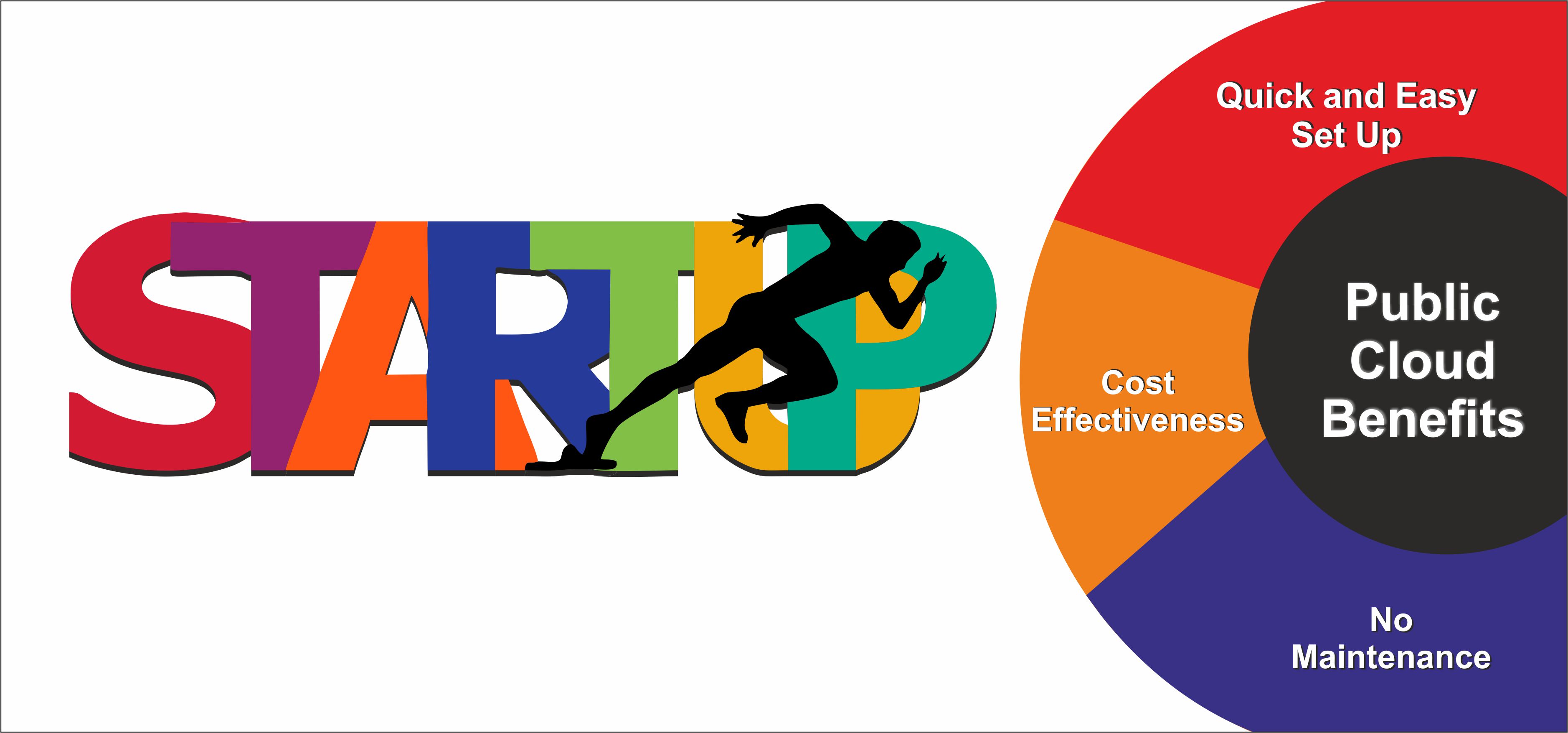
Ease of doing Business with continuous changing digital economy and new innovation in technology day by day, making solid sense for any business to move to the cloud. Cloud computing allows business owners to focus on what is important for their business without worrying about Efficiency, Agility, Scalability or Doing more with pay as you grow with cloud.
Which cloud is best, this is million-dollar question, business user can choose in between public cloud, a private cloud or a Hybrid cloud depending on serval factors such as nature of business, ROI, technical expertise’s and any other requirements.
In this Blog, we will explore on Public Cloud and its direct benefits to Business. So, what is Public Cloud?
Public cloud is designed on the standard cloud computing model, in which a service provider creates resources from physical server by creating virtual machines (VMs), applications or storage, and make it available to the general public over the internet. Any third-party providers which own and operate the shared physical hardware and offer solutions to business based on their needs. With public cloud, the physical hardware is shared by multiple companies. This multi-tenant environment makes it easier to spread the infrastructure costs across a number of users. Because of the cost advantages and pay-as-you-grow model, the public cloud is ideal for small and medium sized businesses.
Let us have a look at the various benefits of the public cloud hosting:
Cost Effectiveness:
An extremely cost effective and flexible pricing structure is one of the key benefits of the Public Cloud Hosting. Most of the public cloud hosting providers give businesses with the flexibility and scalability to pay by the hour and pay as you grow. It literally helps small and medium size businesses, to tighten their financial control with their costs by paying for the infrastructure for their actual needs. Businesses can run their web applications without committing extra Contract or Tie-Ins.
Quick and Easy Set Up:
Businesses can set up their public cloud with in few minutes. Configuration and deployments can be moved to internet easily by the help of central web interface which any cloud provider maintains. You can access and manage your setup remotely with the help of an internet connection.
Optimization of Staffing Budgets:
Cloud hosting provider gives leverage to customer to efficiently manage the setup using a central system, with public cloud hosting provider, Business need to budget only for the cloud hosting services and since the management of cloud is extremely easy, they can always restructure their IT Teams.
No Maintenance:
The cloud hosting provider is primarily responsible for the maintenance of the hardware, software, and networks in the cloud. Businesses, therefore, do not need to worry about keeping their infrastructure up-to-date or worry about aspects like security and upgrades. It allows them to run the infrastructure with a minimal IT staff, thereby significantly reducing the overall costs to the business.
No Long-Term Contracts:
Small and medium businesses typically do not want to get into long term contracts and commit to a certain storage or bandwidth capacity because, a lot of times, they are not really sure about their actual requirements. In such scenarios, the public cloud hosting works out very well because it does not require a long-term commitment or investment. The cloud providers usually offer pay-as-you-grow models, which make the overall engagement extremely easy and hassle-free.
Read Also: What Is Data Center Tiers? Why Tier III Data Center is better?
High Flexibility without Redundancy:
Earlier then cloud days, businesses needed to buy additional hardware, storage, and software to run their applications. This means, they had to duplicate their efforts and costs for ensuring the business continuity. With the Public Cloud Hosting, the data is automatically replicated over the data centers located in the other running facilities – facilitating businesses from without worrying about data backup or excess costs.
Maximum Uptime and Zero Risk Failure:
Every public cloud providers guarantee more than 99% uptime and zero tolerance on failure. Since this Public cloud system interconnects several nodes, machines and servers, in case of any particular server/machine or node failure, other takes automatic control over the workload – ensuring a smooth and continuous performance for business-critical applications and data reliability.












